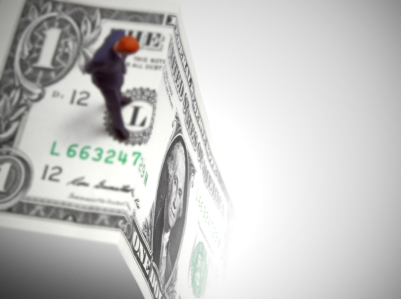“What’s left from the crisis pretty much are memories.” Warren Buffett
By Joel Dresang
As I consumed news coverage commemorating the 10th anniversary of the global financial crisis, my personal memories were foggy. Reflecting on where I was back when Lehman Brothers failed and how much has changed since has made me grateful and mindful.
At this time in 2008, the majority of my family’s financial assets were in the stock of the company that then employed me. The Standard & Poor’s 500 index dropped 46% from the Lehman collapse to March 2009. My ownership in my company’s stock had lost about $400,000 on paper.
None of us knew 10 years ago that we already were in the ninth month of what would be the worst recession since the Great Depression. Employment where I worked then had been declining. Each time the company offered buyouts to entice employees to leave, I felt my only option was to stay.
I was glad to be working, but I had been losing ground financially. The cost of living in the U.S. rose 12.4% from 2004 through 2007. My earnings in that period had gone up just 3%. My wife, Mary, had gone back to work in 2006, when our youngest daughter began full-day kindergarten. I had been seeking more freelance work to supplement my pay.
Ten years later, I don’t remember feeling desperate. I had been reporting on the challenges of out-of-work individuals and their families since before the 2001 recession. Some of the people I covered had regained their footing by the 2008 downturn only to lose it again. Many were pilfering from retirement savings to meet their living expenses.
In a recent survey by the website NerdWallet, 79% of Americans said they suffered setbacks from the financial crisis: 55% said that 10 years later, their finances still have not recovered.
Looking back, I notice several factors that cushioned my family and me from the crisis.
Demographics.
At 50, I was young enough to have time to recover and rebuild for retirement. Studies by the Federal Reserve Bank of St. Louis suggest that my age group, race and education level have provided me advantages.
Relative stability.
A byproduct of our parents growing up in the Depression, Mary and I were accustomed to not spending what we could not afford. We practiced frugality especially after deciding to be a one-income family while our three daughters were preschoolers. Our home furnishings remained mostly what we had before we were married and family hand-me-downs. Our daughters grew up recycling clothes from cousins and neighbors. Vacations mostly were trips to Mary’s family’s cottage and visits with relatives.
Priorities.
In 2007, I had major surgery, and my parents moved from their home in our hometown to a senior-oriented apartment closer to my siblings. Within a few months of the Lehman meltdown, days after his retirement party, my oldest brother broke his hip and fractured his pelvis. My father passed away.
If personal finances concerned me, they didn’t obsess me. Life reminded me that there was more to it than money.
Bending.
In 2009, I committed myself to seek new employment, declaring my intentions to friends and family, even meeting with a career counselor. I had reconciled myself to the belief that the time had come to move on from my chosen profession.
Not breaking.
Just as we are uncomfortable overspending, Mary and I are averse to overreacting. As the markets and economy came undone, we listened to calmer calls for patience, not panic.
A few years before the crisis, we met with Bob Landaas as an investment advisor. He helped us begin to diversify our portfolio and counseled us to stay the course. As luck would have it, a call to Bob about a year after the crisis led to further conversations and a new job for me.
Bonus benefits from my employment now is daily exposure to investment professionals who strive to position individuals to minimize fallout from the next sell-off. Through annual client seminars, weekly podcasts and scores of videos and articles, I have a clearer sense than I would have had a decade ago of what to expect and how to react. In particular, these items come to mind:
- Investment lessons from the last downturn, a Money Talk Video with Steve Giles
- Stocks: Long-term, consistent returns, a Money Talk Video with Dave Sandstrom
- Counting on rainy days, a Money Talk article by Joel Dresang
- The importance of balance, a Money Talk Video
At the same time, many Americans lack understanding of the financial crisis and its aftermath; their behavior could be dooming them to repeat history.
According to a survey by the investment site Betterment, 48% of adults think the S&P 500 did not rise in the last 10 years (Even though its value has more than doubled – not counting dividends.); 18% say the S&P shrank.
So it’s not surprising that 66% of the respondents say they invest less now than they did 10 years ago. Of those who were saving in retirement funds before the crisis, 27% say they have since stopped contributing; 14% continue to save – but only in cash.
Ignorance may be bliss, but forewarned is forearmed.
Rekindling my memories of the last 10 years has reminded me of the importance of balance and patience and taking a long-term approach. Such reminders should come in handy no matter what’s ahead.
Joel Dresang is vice president-communications at Landaas & Company.
(initially posted September 27, 2018)
Send us a question for our next podcast.
Not a Landaas & Company client yet? Click here to learn more.
More information and insight from Money Talk
Money Talk Videos
Follow us on Twitter.
Landaas newsletter subscribers return to the newsletter via e-mail.
